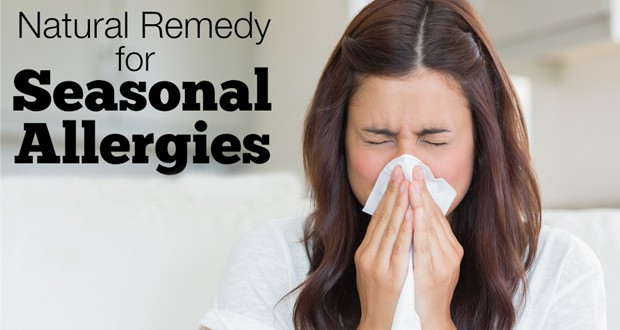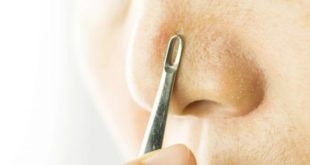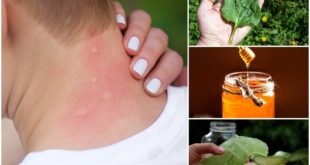
If you suffer a lot from allergies, your immune system needs to be blamed. Your immune system is hypersensitive which reacts to usually harmless things present in your environment. Human immune system produces antibodies to protect the body from unwanted invaders causing infection or diseases. When your immune system is hypersensitive, it starts making antibodies against something which is not harmful but it identifies it to be so. These are allergens for you and when your immune system reacts to them, you may have inflamed skin, sinuses, airways or digestive system. Your allergy my show off such symptoms as red eyes, itchiness, runny nose, eczema, hives, or even an asthma attack. Sometimes foods too act as allergens. Allergies are usually not harmful except that you remain uncomfortable and may develop some permanent medical condition or disease that may need proper medication. Sometimes, however, they may become life-threatening and such an allergic reaction is known as anaphylaxis that are commonly associated with food allergies, certain medicines and wasps or bee stings. Severe allergic reactions need proper medical care but the regular ones may be taken care of by certain natural home remedies for allergies.
Home Remedies for Allergies
1. Neti Pot
This one is for your sinus allergy that gives you runny nose, sneezing, nasal drip and watery eyes to list some of the symptoms. Neti pot is basically a pot with a spout which is used to push in water into your nostrils. Ayurveda, the ancient Indian medical system has used it since years to provide relief to those who suffer from nasal allergies. When you wash your nose and sinuses with water, it washes out mucus and all the other debris including allergens or germs and also help keep your nasal passages moist. Many modern studies have also found out that a nasal rinse helps your sinuses keep clean and reduces the need to be on antihistamines. Even conventional and alternative doctors are prescribing neti pots to keep allergies away. And yes, it is more of a preventive remedy. Keep using neti pot if you suffer from allergy throughout the year or start using it when your worst season of allergies is likely to kick off. Once you catch allergy, neti pot can be of very little help.
How to Use Neti Pot?
- Fill your pot with water. Water can be distilled, warm or saline water.
- Stand near the basin and tilt your head a little towards one side, left or right.
- Bring the spout of the neti pot near your nostril (right nostril if you have tilted head towards left and vice versa), and pour water form the pot into it.
- Adjust your head by moving so that the water drains off from the other nostril. This may take some days initially but you’ll be able to do it with practice.
- Use only half of the water for one nostril. Then tilt your head towards the other side and repeat the process.
- Do this 1-2 times a day.
You can also do this with your cupped hands if you do not find a neti pot or if you hesitate to put in something like a pot spout into your nose!
2. Saline Rinse
Saline water rinses away pollen grains to cure allergies and sinus congestion. Salt water not only washes out pollen but also reduce or thin mucous to give you relief. Salt water is an astringent. Astringents are able to draw together or constrict body tissues. This has tightening, healing and drying effect which contributes in reducing irritation and inflammation. Irrigating your nose with saline solution may soothe upper respiratory allergies as it will remove irritants that get lodged in your nose causing inflammation. Saline sprays are readily available but you can make it at home as well because it is very easy to make and use saline solution.
How to Make Saline Water?
Get this:
- Salt (non-iodized, preferably sea salt)- 1 tsp
- Distilled water (warm)- 2 cups
- Baking soda (optional)- a pinch of it
Do this:
- You can use saline water by taking it into your cupped hands or a neti pot. If you are not comfortable any these ways, fill the solution in a squeeze bottle.
- Bend over a sink and sniff a little saline water from your cupped hands. If using neti pot, follow the directions given in the earlier remedy. Pour it into one of the nostrils at a time if using a squeeze bottle.
- Let the saline water come out of the other nostril or mouth or even from the same nostril.
- Repeat till the saline water gets over.
- Do this 1-2 times a day.
Precaution: If you are an asthma patient, consult your doctor before using saline water remedy.
3. Local Honey to Keep Away Allergies
You have always known the health benefits of honey but did you know that local honey can keep your allergies away! How is the question. We all know that bees collect nectar from flowers and they fly from one flower to another. In this process, they also take pollens from the flowers and leave them wherever they touch themselves, may it be other flowers or their own honeycomb. Now when you purchase local honey, it comes with the traces of local pollens. These are the pollens that give you allergies. This local honey works like vaccination. When you eat this honey, you are consuming pollens that are in such negligible amount in the honey that it won’t trigger allergic reaction. At the same time, you are sending these pollens in your body so that your immune system gets used to them and do not react weirdly when you come in contact with these pollens in your local environment! You just need to have 1-2 tsp of local honey daily – the honey that has been obtained from a honeycomb as near to your area as possible!
4. Green Tea to Fight Allergies
Green tea has long been accepted as a healthy beverage. Now a research conducted by Kyushu University of Japan has established the positive role of green tea in combating allergies. The antioxidants rich green tea has this compound called Epigallocatechin Gallate (EGCG) which seems to be the wonder substance. EGCG blocks the production of histamine and immunoglobulin E (IgE). These two compounds are responsible for triggering and sustaining allergic reactions in your body.
How to make Green Tea?
Get this:
- Green tea leaves- 1 tsp
- Hot water- 1 cup
- Honey, preferably local one (optional)- 1-2 tsp
Do this:
- Place the green tea leaves in a pot.
- Pour hot water over it.
- Steep for 3-4 minutes.
- Strain and add honey if using.
- Have this 1-2 times a day.
5. Apple Cider Vinegar
Apple cider vinegar has been used since ages to treat and prevent various diseases. This folk traditional remedy can even be beneficial for those who suffer from frequent allergies. Apple cider vinegar reduces mucous production as well as cleanse your lymphatic system and thus it is useful in preventing allergies. You get allergies when your body, as a mistaken identity about an allergen, starts releasing histamine to fight it off. This unusual amount of histamine against the harmless substance then circulate within whole of your body signaling the mucus membranes to produce symptoms of allergies like inflammation, rashes, sneezing etc. Apple Cider Vinegar prevents the production and release of histamines and thus save you from such allergic symptoms as sneezing, nasal congestion, runny nose, itchy, red, swollen or watery eyes, itching, headache, nosebleed, cough and asthma. Just take care to buy such vinegar that has the mother in it. Mother in a vinegar is the cloudy cobweb like floating substance that has all the curative properties in it.
How to Take Apple Cider Vinegar?
Get this:
- Apple cider vinegar- 1 tsp
- Water- 1 glass
Do this:
- Add the vinegar to the glass of water.
- Have it three times a day.
6. Stinging Nettle Leaves
The anti-inflammatory nettle leaves are one of the best remedies for allergies, especially allergic rhinitis. It excellently relieves almost all the symptoms of itchy, watery eyes, sneezing and runny nose that indicate rhinitis allergy. Modern researches have proved this. The stinging hair of nettle contains amines, glucoquinones and chlorophyll – the active components that are considered to block the production of histamines by your body during allergic reaction. These leaves also boost immunity thus protecting you from any type of allergy. This herbal remedy can be used in the form of capsules, tincture or tea.
Ways to Use Nettle Leaves for Allergies
- When using capsules, take 150 to 500 milligrams 2-3 times daily for two weeks.
- If using tincture, take two dropper full 3 times a day. This dose is for adults. It is, however, always recommended that you consult a medical herbalist to get the exact dose for any herbal preparation including capsules and tincture.
- To make nettle tea, steep 1-2 tablespoons of dried nettle leaves in hot water for 10 minutes. Strain and add honey to this if you want to make it a little sweeter. If possible, use local honey which is another remedy for allergies as discussed earlier. Have 2 cups of nettle leaves tea daily and start having it about two months before the allergy season begins. You may add other herbs like peppermint leaves, raspberry leaves etc. that are also good for preventing allergies.
Precaution: If you are on blood thinners or blood pressure lowering medications, consult your doctor before using nettle leaves.
7. Peppermint Tea for Allergies
The volatile oils namely menthol, menthone, and menthylacetate present in peppermint are of great benefit to human health. It is especially beneficial for the allergies related to nasal passage and breathing problems. The menthol component of peppermint acts as a decongestant and expectorant and thus breaks up mucus and clears out your nose and throat. This herb also has anti-inflammatory and mild antibacterial properties. Peppermint tea can be consumed or used to take steam and make compress to get relief form allergies.
How to Make Peppermint Tea?
Get this:
- Dried peppermint leaves- 1 tbsp
- Hot water- 3-4 cups
Do this:
- Place the peppermint leaves in a pot or jar.
- Pour the hot water over it.
- Let it steep for 5-7 minutes.
- Strain and have it after cooling down a little.
- You may also take steam of this tea.
Ways to Use Peppermint Tea
- Take hot peppermint tea in a cup or bowl and hold your face over it and inhale steam. The steam that enters your nostrils will open up your nasal passages.
- To consume peppermint tea, add some honey if desired and sip it to clear out your throat.
- You may also use a peppermint tea bag as a warm compress to sooth your itchy eyes. Steep the tea bag in hot water for about half to 1 minute, Take out the bag and let it cool down a little to become warm (never use hot compress for eyes). Now close your eyes and place the warm peppermint tea bag over your eyelids. Leave it for 5-10 minutes while you relax.
8. Essential Oils for Allergies
Essential oils can prove to be strong natural antihistamines that can get you rid of various symptoms of allergies. The three most effective essential oils for allergies include Lavender, Lemon and Peppermint essential oils. They, in a combined form, cure inflammation due to allergic reaction in an excellent way. They are especially good for airborne allergies. You need to take 2-4 drops of each of these essential oils, combine them and use them in one of the ways suggested below.
Ways to Use Essential Oils for Allergies
Get this:
- Lavender essential oil- 2-4 drops
- Lemon essential oil- 2-4 drops
- Peppermint essential oil- 2-4 drops
Do this:
- Combine all the oils and then follow one of these:
- Pour them in a bowl of hot water and inhale the steam to relieve your respiratory tract and nasal passages.
- Add this combination of oils to a cup of water and gargle to relieve congestion in throat.
- Consume internally by adding them to a tsp of honey, preferably local honey.
- For kids, rub this oil mix on to their feet twice a day.
- To get relief from sinus discomforts and headaches etc. rub a small amount of this oil on your forehead, ears, sinuses, and even neck and back of neck. Be careful to not let the oil enter your eyes.
9. Have Vitamin C Rich Foods to Avoid Allergies
Vitamin C (Ascorbic acid) is a known natural antihistamine and a powerful one! A research conducted in 2011 found that this vitamin destroys the molecular structure of the imidole ring of the histamine molecule. Thus, the amount of histamine in blood gets reduced. Another earlier research had said that to reduce histamine levels by 40 percent, a person needs only 2 g of ascorbic acid. Thus it makes sense to include such foods in your daily diet that contain vitamin C in good amounts. Here’s a list of foods that you can include in your diet.
- Fruits like guava, blackcurrants, mango, strawberries, papayas, citrus fruits like oranges, elderberries, peaches, raspberries, bananas, kiwi, pineapple, cranberry juice
- Vegetables like red bell peppers, kale, parsley, green peppers, broccoli, brussels sprouts, mustard greens, watercress, cauliflower, red cabbage, spinach, turnips, asparagus, cantaloupe, cayenne pepper, green onions, green peas, radishes, yellow summer squash, sweet potatoes, loganberries, tomatoes, new potatoes, lettuce
- Liver
- Lima beans, black-eyed peas
10. Have Quercetin Rich Foods
Quercetin, a natural bioflavonoid, is a natural plant-derived compound which is also a natural antihistamine. Quercetin helps stabilize mast cells and thus prevents these cells from releasing histamine. Quercetin is not only a natural antihistamine but also is a natural antioxidant that fights of free radicals responsible for body cell damage. A potent antioxidant is considered to help reduce inflammation too. There are many foods that contain quercetin and if you are prone to allergies, you should include these foods in your diet.
Foods Rich in Quercetin
- Citrus fruits
- Onions
- Apples
- Parsley
- Tea
- Tomatoes
- Broccoli
- Lettuce
- Wine
- Berries
11. Have Omega-3 Fatty Acids
Omega-3 is an unsaturated fatty acid which is essential for our health. Apart from many other health benefits, omega 3 fatty acids also alleviate allergies, especially seasonal allergies. One is through its anti-inflammatory properties which reduces inflammation due to allergic reactions. The other way through which it prevents allergy is by boosting immune system. Apart from other anti-allergic foods, it is good to have such foods too that contain omega 3 fatty acids. This is also needed because despite being essential, our body is not able to manufacture omega 3 fatty acids.
List of Foods Rich in Omega-3 Fatty Acids
- Fish like salmon, tuna, and halibut
- Walnuts
- Flaxseed oil
- Canola oil
- Grass fed meat
- Soybeans and tofu
- Shrimp
- Brussels sprouts
- Cauliflower
- Winter squash
12. Echinacea for Allergies
Echinacea, belonging to daisy family, has been used traditionally by Native Americans to prevent and alleviate allergies. It works by stimulating the immune system and often herbalists prescribe it to treat such allergies as hay fever and allergic rhinitis. It effectively reduces symptoms of colds and flu too such as cough, fever and sore throat. Certain studies have shown that extracts of echinacea increases the number of white blood cells which boosts the activity of other immune cells in your body. Make echinacea tea to boost your immunity and keep allergies at bay.
How to Make Echinacea Tea?
Get this:
- Echinacea leaves, flowers, roots- 1 tbsp
- Lemon grass- ¼ tbsp
- Peppermint leaves- ¼ tbsp
- Honey- to taste
- Hot water- 1 cup
Do this:
- Mix all the herbs.
- Pour hot water over them.
- Steep for about 5 minutes.
- Strain and add honey.
- Have this 1-2 times a day.
13. Goldenseal Herbal Remedy for Allergies
Goldenseal has antibiotic, anti-inflammatory and astringent properties. It is excellent when it comes to soothe irritated mucus membranes. It is very effective in preventing secondary infection in hay fever, sinusitis, or chest congestion. In fact, this herb is useful in all types of airborne allergy responses. . American Indians used goldenseal extensively for inflammatory conditions like respiratory, digestive and genital and urinary tract inflammation due to allergy or infection. You can have it in form of tincture or tea. Tea is bitter, so use honey with it. When taking tincture, have 30 drops 4-6 times daily. However, you should consult a herbalist for exact dosage.
How to Make Goldenseal Tea?
Get this:
- Goldenseal herb- 1 tsp
- Hot water- 1 cup
- Honey, preferably local- 2 tsp or to taste
Do this:
- Place the herb in a pot.
- Pour hot water over it.
- Steep for 3-5 minutes.
- Strain and add honey.
- Have this 1-2 times a day.
These home remedies for allergies are a good way not only to cure but also to prevent allergies. While herbs and special ingredients should be taken before the onset of allergy season, foods that combat allergies should regularly be taken through out the year.
Source: RapidHomeRemedies
 We are sharing information for knowledge. Presented by. SocialDiary.Net
We are sharing information for knowledge. Presented by. SocialDiary.Net



